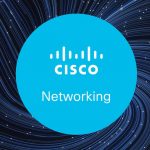One is a sport apparel retailer while the other is a software company. “What can they possibly have in common?” you may ask. Both have a common IT goal, and that is to extend their enterprise network to AWS cloud, but for very different business outcomes. And both accomplished their goal using the same solution: Cisco Cloud Services Router 1000V.
Did you know? Up to 70% of CIOs stated they need cloud solutions to better respond to business needs (Source: 2015, CIO Insight). For that reason, cloud adoption between 2015 and 2016 grows exponentially with as much as 71% of organizations choosing the hybrid cloud approach. See Chart I below.
Chart I: Respondents Adopting cloud – 2016 vs. 2015

What are top 3 cloud adoption challenges?
When it comes to extending the enterprise network to the cloud, there are many factors to consider – see Chart II below.
Chart II: Cloud Challenges 2016 vs. 2015

Security, no doubt, is among the top. One out of every three organizations shared ensuring a secure connection between the on-prem enterprise network and public and private cloud environments as a top challenge. There are several reasons why.
- Inconsistent VPN and firewall policies between on-prem enterprise network and different cloud environment;
- Limited connection reliability, e.g. not all cloud solution can support high scale; and
- Non-unified network topologies make management and operations error-prone.
Next on the list is integration. With the LAN, WAN and data center network, each having its own set of internal and external network/IP address, management interface/tools and different quantity and set of network services, operations quickly become onerous due to lack of centralization and standardization. The complexity increases multifold when multiple types of on-prem and cloud infrastructure come into the picture. For example, do I have VMWare ESXi, RHEL KVM, Ubuntu KVM, Citrix Xen, and/or Microsoft Hyper-V? And how do they work with Amazon AWS, Microsoft Azure, or any cloud? Quick answer: it should not matter.
Last but not least is the user experience. When the network is confined within an enterprise WAN perimeter, policy enforcement can be automated based on business priorities. Once connected to the cloud, how would network services that were once innate on-prem such as QoS, WAN and application optimization, and firewall be deployed, managed and scaled?
Learn from Under Armour and Adobe
This December, two enterprise customers, Under Armour and Adobe, will share with us their cloud strategy successes in a webinar. Each will highlight its goal, network environments, desired business outcomes, and the chosen solution. Here’s an overview.
 Under Armour, Inc. – a multi-billion American sports clothing and accessories company
Under Armour, Inc. – a multi-billion American sports clothing and accessories company
Its goal: New IT model – a service broker for Line of Business
- Enable the Application/Marketing/Financial team’s growth
- Curve the organic growth of ungoverned Shadow IT resources
- Provide an agnostic platform that facilitates Standard Operating Procedure
- Augment application owner’s security controls
- Have visibility to address issues proactively
 Adobe Systems, Inc. – a multinational computer software company
Adobe Systems, Inc. – a multinational computer software company
Its goal: Adobe Digital Marketing Cloud
- Provide a comprehensive marketing solution
- Enable marketers to measure, personalize and optimize digital experiences
- Attain agility and workload mobility
WATCH ON-DEMAND
Join us and learn
- How Cisco helped simplify Under Armour’s and Adobe’s security management while keeping connectivity costs under control
- Best practices for monitoring and analyzing application security and performance in the cloud
- How to implement consistent network policies across hybrid environments
Speakers:
Nick Matthews, Partner Solutions Architect, Amazon Web Services
Fan Yang, Technical Marketing Engineer, Cisco
Carl Coles, Network Architect, Adobe Systems
Patrick Duroseau, Sr. Director Global Infrastructure, Under Armour
Test drive the solution yourself in your own environment with a free trial for 30 days on AWS. Cisco CSR 1000V is a complete multiservice cloud networking platform for all deployment types: physical, virtual, and cloud.
Key Benefits:
- Consistent operations across on-prem network and multi-cloud environments with familiar Cisco IOS-XE software;
- Support VMware ESXi, RHEL KVM, Ubuntu KVM, Citrix Xen, Microsoft Hyper-V;
- Infrastructure agnostic operations means freedom of choice, no dependency on any specific server or virtual switch;
- Elastic scalability with licensing flexibility: throughput up to 10gbps, up to 1000+ connections, and up to 8 virtual CPUs, pay only for what you need; and
- Programmable with NetConf/Yang, RESTConf and SSH/Telnet for automated provisioning, management and monitoring.


CONNECT WITH US